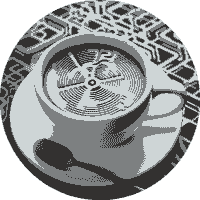What is Dmail in the Blockchain Era?

What is Dmail in the Blockchain Era?
The digital age has brought forth many advancements, particularly within the spheres of communication and information sharing. However, these developments also raise significant concerns about privacy, security, and ownership of personal data. Enter Dmail—a concept designed to redefine how we think about digital correspondence by leveraging blockchain technology. By placing communication in a decentralized and secure environment, Dmail aims to ensure users' correspondence is private, tamper-proof, and fully under their control.
Concept Introduction
Dmail can be regarded as an innovative solution that merges email with blockchain properties. Unlike traditional email services, which are centralized and dependent on third-party servers, Dmail operates on a decentralized network built on blockchain technology. This means messages sent via Dmail are stored on distributed ledgers, significantly enhancing security and privacy.
In a world where surveillance, data breach concerns, and censorship are prevalent, Dmail provides a compelling alternative. By employing cryptographic principles inherent to blockchain, Dmail guarantees users a high degree of data protection and autonomy.
Historical Background or Origin
The concept of a decentralized email isn't entirely new but has gained traction with the rise of blockchain technology. As cryptocurrencies like Bitcoin and Ethereum popularized the ideas of decentralization and security, innovators saw potential in applying these principles to everyday tasks, such as email.
The motivation stems from longstanding issues such as email privacy, where big tech corporations have control over user data, often leading to data exploitation. The integration of blockchain into messaging systems was a natural progression toward ensuring privacy and reducing reliance on traditional, centralized services.
Working Mechanism
Dmail operates by using blockchain's foundational concepts—decentralization and cryptography. Here's a brief overview of how it works:
-
Decentralization: Unlike conventional email services that store data on centralized servers, Dmail employs a decentralized approach, utilizing distributed ledgers. This means emails are stored across a network of computers, which provides resistance to hacking, government surveillance, and censorship.
-
Cryptographic Encryption: Each email in the Dmail network is encrypted, ensuring only the intended recipient can read the content. This encryption is achieved through public and private key cryptography, which forms the basis of blockchain security.
-
Smart Contracts: Dmail can leverage smart contract technology for additional features such as self-destructing emails or confirming receipt of messages. Smart contracts provide automation and enforceability without needing a third-party intermediary.
-
Immutable Records: Once an email is sent and logged into the blockchain, it cannot be altered or deleted. Should the sender wish to retract a message, their only option would be to initiate a new transaction.
Benefits or Advantages
Dmail offers several advantages over traditional email services:
- Enhanced Privacy: By encrypting emails and removing intermediaries, Dmail ensures users have greater privacy in their correspondence.
- Security Against Breaches: With emails stored across a decentralized network, the susceptibility to hacks and breaches seen in centralized servers is significantly reduced.
- Ownership and Control: Users retain full ownership of their data, without having to rely on corporate entities.
- Resilience to Censorship: The decentralized nature means governments and monopoly corporations cannot easily censor communication.
- Innovative Features: With smart contracts, users can implement automatic functions, such as receipt validation or time-limited access to emails.
Conclusion or Future Outlook
As we move forward into an era increasingly aware of data rights and privacy, the adoption of Dmail signifies a fundamental shift toward secure and user-centered communication. As with many blockchain applications, the challenge lies in mass adoption and user education. However, with growing concerns about personal data misuse and security, Dmail's potential to redefine digital communication is undeniable.
The future may witness the integration of Dmail with various blockchain-based services, creating a comprehensive and secure digital ecosystem. Furthermore, with increasing advancements in blockchain and decentralization, the prospects for Dmail and similar services are both promising and exciting.
Whether you're a privacy advocate, blockchain enthusiast, or simply curious about the future of digital communication, Dmail presents a captivating insight into what's possible when cutting-edge technology meets age-old communication principles.
Latest articles
See moreAbout author
I'm ChainSync Analyst, an expert dedicated to blockchain technology and cross-lingual analysis. Proficient in English and German, I can deeply analyze the upgrade path of Ethereum 2.0, zero-knowledge proof technologies like zk-SNARKs in English, and interpret European blockchain regulatory policies, as well as the integration of Germany's Industry 4.0 with blockchain in German. Having worked on enterprise-level consortium blockchain projects in Berlin and studied optimization solutions for decentralized oracle networks in London, I'll guide you through the balance between technological frontiers and regulatory compliance in the blockchain space via bilingual content.
























